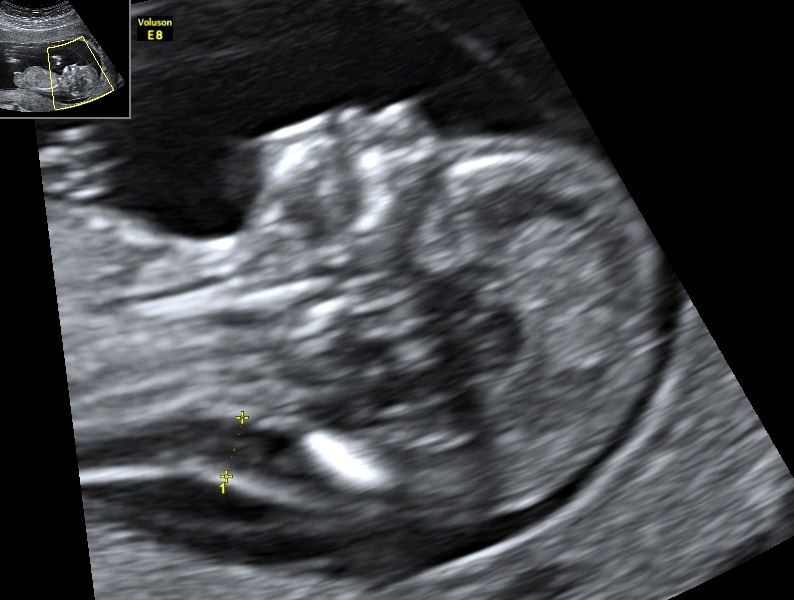
The Nuchal Translucency Scan
12 Jun 2018 | 3 min Read
Shilpa Saple
Author | 7 Articles
What is the NT Test Ultrasound?
The nuchal translucency test, often called as the NT test ultrasound, refers to the collection of fluid under the skin at the back of the baby’s neck. It is the amount of this fluid that Nuchal translucency scan aims to measure.
This scan is usually carried out between 11 – 14 weeks into the pregnancy, but is not very useful after the 14th week. The scan can play a very important role in determining birth effects (if any) such as the Down syndrome (in case of high nuchal translucency), abnormalities and even heart problems. This test is usually done in combination with a blood test.
In the nuchal translucency scan, the sonologist measures the baby’s nasal bone and as well the fluid present at the back of the baby’s neck.
What are the advantages of the NT test ultrasound?
While the screening is mostly optional, it is quite important. When awaiting the results of the screening, it is helpful for the parents to discuss what will be done if the baby is detected with a chromosome abnormality such as Down syndrome. The NT test ultrasound is able to pick up almost 77 percent of the babies with an abnormality and Down syndrome. The accuracy of the scan increases further when it is done along with the blood test.
This scan is also considered important for women who are over 35 years old since the since the risk of chromosomal abnormalities increases with maternal age.
Apart from detecting the chromosomal abnormalities, the NT test ultrasound also helps in:
- Assessment of the baby’s heartbeat
- Dating of the pregnancy
- Assessment of the baby’s physical development such as the head, arms and legs
- Determining the number of babies (in case of multiple pregnancies)
- Checking the uterus and the pelvic area for conditions such as fibroids
How long does NT test ultrasound take?
The scan takes only about 20-30 minutes.
What can one expect during the NT scan?
- For the trans-abdominal NT test ultrasound, you will be told to have a full bladder in order to get a proper visual assessment. But your bladder must not be full to the point that you experience pain. While the scan is being done, you may experience some pressure against your belly but this will not hurt.
- This scan could be trans-abdominal or trans-vaginal. In the trans-abdominal scan, the ultrasound is done by applying the gel on the lower abdomen while the measurements are taken.
- In some cases, a trans-vaginal scan could be recommended. This may be to have a closer look at the baby and the ovaries. In the trans-vaginal NT test ultrasound, the sonologist inserts a small probe into the vagina. This is not an invasive process and will not harm the baby in any way.
The normal nuchal translucency range is:
At 11 weeks: up to 2 mm
At 13 weeks: up to 2.8 mm
How much does the NT ultrasound cost?
In a private hospital, the NT ultrasound cost may go up to INR 2000. However, in government hospitals, the cost is nominal.
This test, although recommended to most women, is an optional test. Some women prefer to get this test done in order to be prepared for any abnormalities in the pregnancy. On the other hand, some pregnant women may not want to get the test done since its results may lead to stress and wouldn’t really change anything for the mother.
Also read: An Ultrasound Scan Report: A Treasure Box Of Information During Pregnancy
A


Related Topics for you
Suggestions offered by doctors on BabyChakra are of advisory nature i.e., for educational and informational purposes only. Content posted on, created for, or compiled by BabyChakra is not intended or designed to replace your doctor's independent judgment about any symptom, condition, or the appropriateness or risks of a procedure or treatment for a given person.
